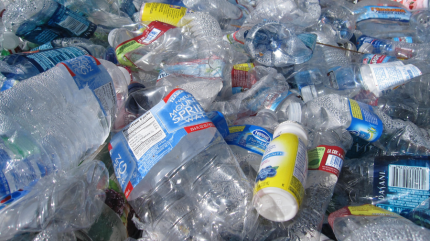
The European Commission is proposing banning the use of the Bisphenol A (BPA) chemical used in food and drink packaging.
A consultation process has been launched ahead of a ban on the use of BPA in so-called food contact materials (FCMs) following findings from the European Food Safety Authority (EFSA), which indicated a “concern for human health”.
BPA is commonly used to produce polycarbonate plastics often found in items such as water bottles and epoxy resins that coat some food cans and jar lids. The EC is concerned the chemical can “migrate” into the food and drinks they encase.
The aim is to “impose a ban on the use of BPA in food contact materials (FCMs), including plastic and coated packaging”, according to a statement, which added the ban will also seek “to avoid replacing BPA with other harmful substances”.
Exemptions and relaxations from the law will be considered, along with “transitional periods that may apply to businesses”.
“Based on the opinion of the Authority of 2023, the authorisation of BPA for use in the manufacture of plastic food contact materials and articles, as well as its use in other food contact materials and articles, should be updated,” the EC statement read.
It suggested even small amounts of the chemical could be harmful to human health if the quantity is above the ‘tolerable daily intake (TDI)’ level.
The EC’s consultation has opened the door to feedback for a four-week period ending on 8 March.
Industry body FoodDrinkEurope told Just Drinks that food and drink manufacturers would “fully comply with any new regulations” but called for measures to be “proportionate” and realistic.
“Policymakers should also be mindful of how such regulatory measures could negatively impact food waste and packaging waste.”
“If it’s not safe; it’s not food. And those same rigorous standards apply to our food packaging,” said the organisation.
Last September, the European Environment Agency (EEA) released a report that said the hormone-disrupting chemical could be present in almost all Europeans’ bodies, posing a health risk to millions.
BPA is “well above acceptable health safety levels”, according to the EEA.
The EEA said following an EU human biomonitoring research project it found between 71% and 100% of people taking part across 11 EU countries were likely exposed to “above safe health thresholds” of BPA.
Leena Ylä-Mononen, EEA executive director, said at the time: “Bisphenol A poses a much more widespread risk to our health than previously thought. We must take the results of this research seriously and take more action at the EU level to limit the exposure to chemicals that pose a risk to the health of Europeans.”



